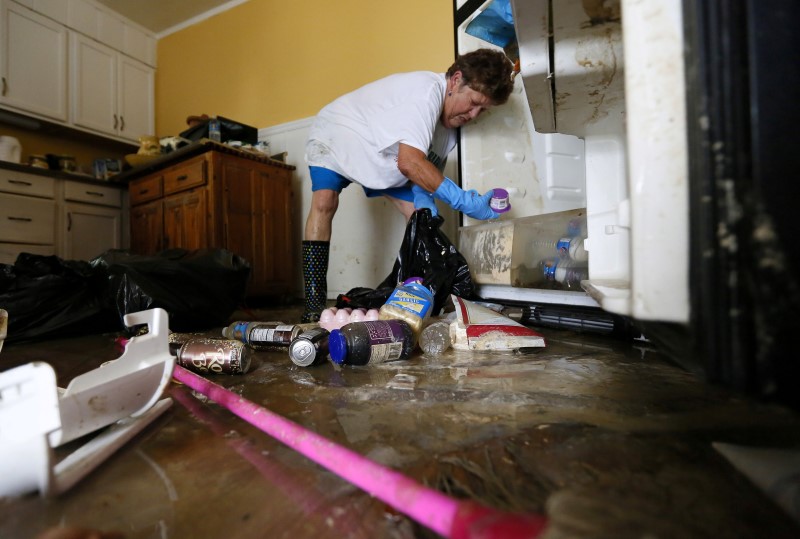By Sam Karlin
BATON ROUGE, La. (Reuters) - More than 3,000 Louisiana residents were still in emergency shelters as record flood waters receded on Monday, while government officials weighed options for temporary housing after the state's worst disaster since Hurricane Katrina.
About 60,600 homes have been reported damaged or destroyed in flooding that swept through 20 parishes, or counties, in the southern part of the state after torrential rains earlier this month.
With swollen rivers, streams and bayous returning to normal, many people were going back to their homes and businesses, and state offices had reopened.
But the governor's office said 3,075 residents were still living in shelters as of Monday, a day before President Barack Obama is due to tour the stricken area.
The extent of the damage prompted the Federal Emergency Management Agency to extend a grace period to renew lapsed flood insurance policies for parts of Louisiana for the first time since Katrina in 2005.
"We've seen major destruction to communities across the state," Roy Wright, deputy associate administrator for FEMA's Federal Insurance and Mitigation Administration, said in a statement about the extension.
Residents have already filed more than 25,600 flood insurance claims. But only 42 percent of Louisiana homes in high-risk areas had flood insurance, while only 12.5 percent of homeowners in low and moderate-risk zones were covered, according to FEMA estimates.
The agency has also already received some 110,500 applications for individual assistance, and $74 million in individual grants has been paid out.
"When it comes to a home that is lost, FEMA money is not designed to replace insurance or make people whole again," said FEMA spokesman Rafael Lemaitre. "It's a life vest, not a life boat."
So far, the number of people affected by the floods pales in comparison with the nearly 74,000 families forced out of homes after Katrina and the 11,000 displaced after Hurricane Rita, a storm that came a few weeks later in 2005.
In 2005, FEMA faced widespread criticism for what many considered a slow, inept response. But the agency appears to have benefited from experience.
"From the vantage point of a citizen, what we see is a much more coordinated state, federal and local partnership on the response," said Adam Knapp, head of the Baton Rouge Area Chamber and a former deputy director of the Louisiana Recovery Authority after Katrina.
"That is a perhaps a hard-fought, hard-won experience for us since Katrina – when we learned how important it is to be coordinated in the immediate response."
FEMA has formed a task force to identify temporary housing options for the thousands displaced by the floods, Lemaitre said. That may include manufactured housing units that meet or exceed government certifications, he said.
FEMA paid $6.6 billion to about 1.07 million households and individuals in the Gulf states after Katrina, $5.3 billion of which went to Louisiana alone.
In response to this month's flooding, FEMA has issued more than $15 million in advanced flood insurance payments to Louisianans who sustained damages, the agency said in a statement on Monday.

(Additional reporting and writing by Chris Prentice in New York; editing by Frank McGurty and Tom Brown)